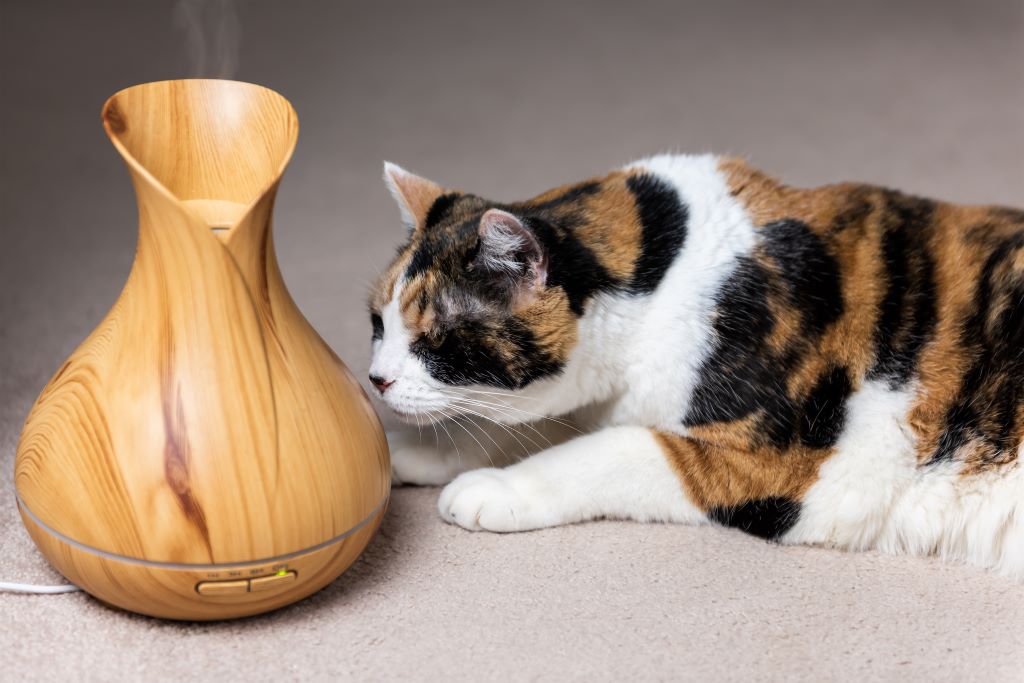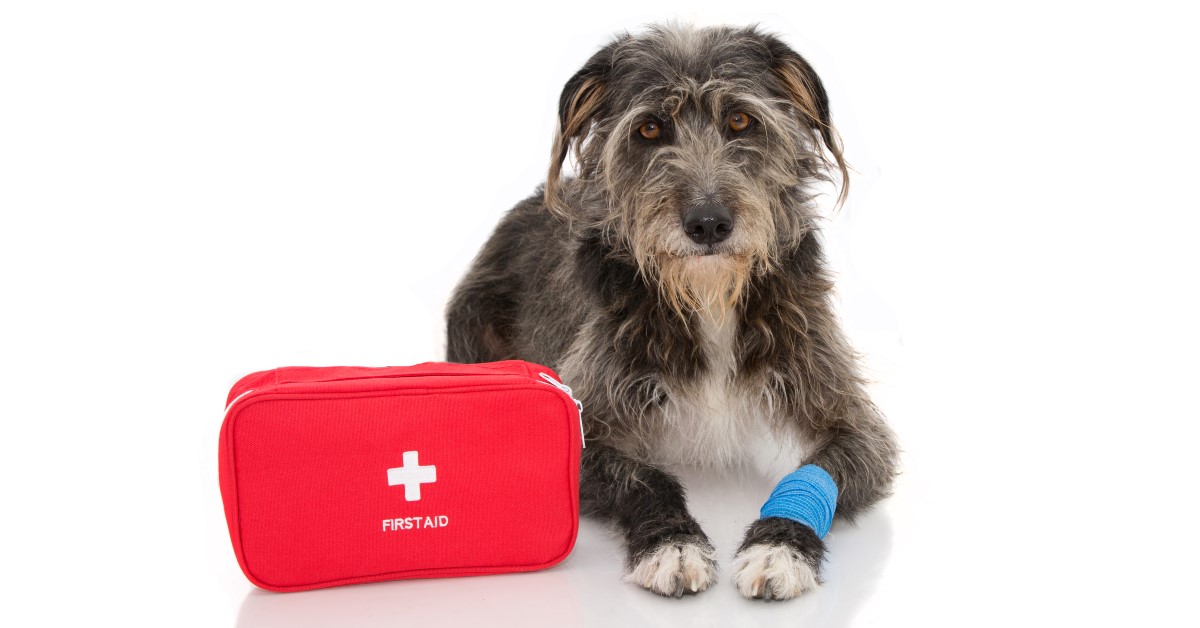Are Essential Oils Safe for Your Pet?
Essential oils have limited benefits to pets as alternative holistic treatments.

Essential oils are all the rage. People use them as aromatherapy to relax or sleep better. Others swear by their ability to ease muscle pain and congestion. Just like foods, though, not all essential oils that humans enjoy are safe for pets. With the increased interest in using them for various pet ailments, it's important to know the facts and dangers of essential oils before using them on or around your pet.
What are Essential Oils?
In the simplest terms, essential oils are what give plants their distinct scents. These liquids are removed from plants and sold in various concentrations in beauty products, home fragrance products, natural medicines, and pet treatments. The more diluted with water or other liquids, the lower the concentration of the oil.
They can be absorbed through the skin, by breathing them in or via the gastrointestinal system when ingested. Some are metabolized in the liver while others leave the body in the same form they were absorbed.
Are They Safe for My Pet?
Unfortunately, this isn't a yes-or-no answer. Variables in their safety include the type of oil and its natural toxicity to pets, the concentration of the oil, your pet's underlying health issues, and the breed of pet(s) you have.
- Toxicity - Some oils are poisonous to dogs and cats regardless of how they're ingested. These include, cinnamon, tea tree, peppermint, wintergreen, citrus, pine, and pennyroyal. The higher the concentration of the oil, the more dangerous, but any ingestion of these specific oils should prompt an immediate call or visit to your veterinarian.
- Concentration - Remember that dogs and cats have much more sensitive noses than humans. Even a drop or two of an undiluted oil may overwhelm and irritate their olfactory system. Common fragrance and beauty products may have lower concentrations (1% to 20% often) but some may be 100% essential oil. These can harm your pet even when absorbed through incidental contact.
- Health Issues - Any pets with respiratory issues or skin conditions should not come into contact with any essential oils. Oils can exacerbate existing breathing issues and skin allergies.
- Breed - Cats don't possess the liver enzyme needed to metabolize essential oils safely. Cats, as well as rabbits, hamsters and the like also run a higher risk of skin issues because of their grooming habits. Birds have a distinct respiratory system that makes them more susceptible to breathing problems from oils in the air.
How Could Oils Affect my Pet?
If you've noticed an increase in skin irritation or licking by your pet since you've added an essential oil diffuser to your home, chances are good that she's having an adverse reaction to it. Similarly, coughing, wheezing or excess panting may indicate respiratory problems from inhalation of the oils.
Pets exposed to oils in food or grooming products may experience diarrhea or vomiting from a gastrointestinal tract reaction.
In extreme cases, pets may have neurological symptoms including behavioral changes, seizures, tremors, clumsiness, or disproportionate drooling. Low blood pressure and slowed heart rate may also indicate an issue.
Aren't They Safer Than Chemicals?
Several essential oils are heavily promoted as natural treatments for pets, but their efficacy is questionable and often outweighed by the risks they pose. For instance, peppermint and tea tree oils are touted as alternate flea and tick treatments, while wintergreen and pine oils are pushed as pain relievers.
The scent of peppermint and tea tree oils both repel pests, but using either in a high concentration can cause skin irritation and breathing problems. Toxic exposure to tea tree oil can also result in rear leg paralysis and vomiting.
Wintergreen oil contains aspirin, which can be toxic to dogs. Both wintergreen and pine oils' toxic side effects to pets include vomiting and kidney or liver failure. Pine oil, whether taken orally or through the skin, can also cause serious central nervous system trouble.
Commercially made shampoos, medicines and lotions feature essential oils in a low concentration evenly distributed to avoid overexposure. This minimizes the risks. Your pet is at the highest risk when the oil is the main or sole ingredient.
Although essential oils like these are promoted as “natural” alternatives to medicinal treatments, such products are not subject to government regulation and therefore don’t have much research to support their safety and effectiveness. The chemicals in commercial treatments are regulated and proven effective.
Should I Avoid Essential Oils Altogether?
Again, it depends.
If you have a bird, cat, any other pet that grooms himself, or a pet with existing respiratory issues, essential oil diffusers should be avoided. Don't use diffusers around dogs who aren't able to leave the room if the smell is too much.
In high concentrations, essential oils should never be used on any pets. Reactions vary from olfactory irritation to severe neurological problems. Oil use directly on cats is also discouraged, since they lack the enzyme needed to properly expel them.
Toxic reactions in pets have increased as the desire to use more natural or holistic pet products has risen. However, certain essential oils may help particular pets. The only way to know for sure and keep your pet safe is to discuss their use with your veterinarian. If your vet is unfamiliar with essential oils, don't be afraid to ask if she can consult with or refer you to a vet who does.
If your pet is exposed to or ingests an essential oil, call your vet or the 24-hour animal control poison center at 855-764-7661. If your pet is exhibiting any symptoms of potential exposure or ingestion, including central nervous system issues, vomiting, weakness or excessive drooling, get her to a vet as quickly as possible. If your vet is closed, go to the nearest emergency pet hospital.
Ready to start saving money on pet wellness care?
Then take a look at Mint Wellness, the pet wellness plan that provides fast reimbursement on routine pet care. Save on vaccinations, wellness exams, preventatives, dental, and more!
Learn More


